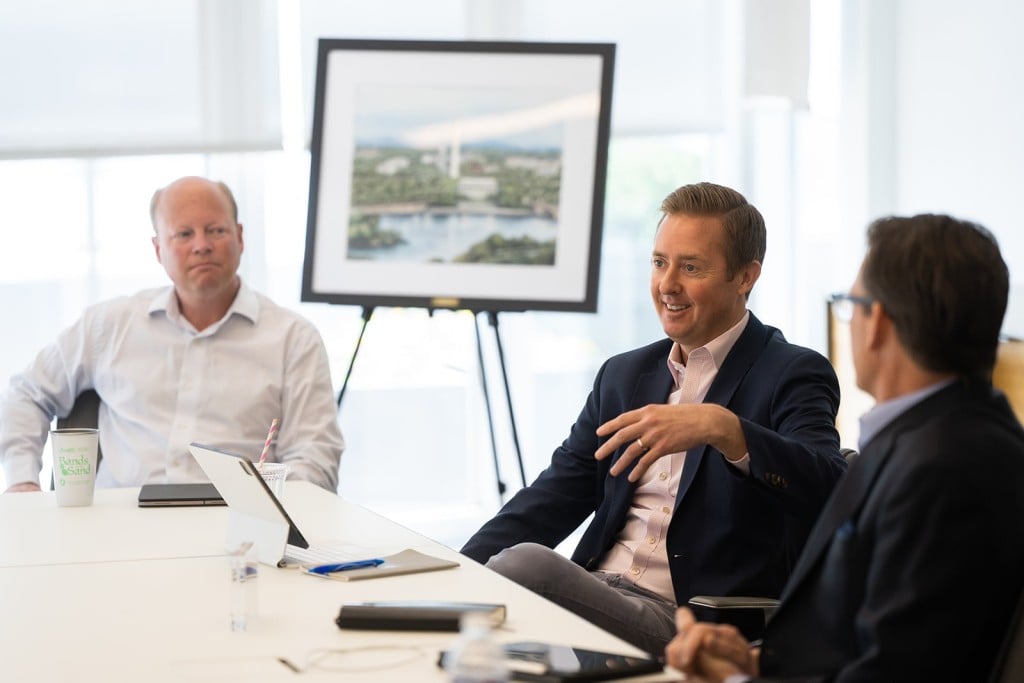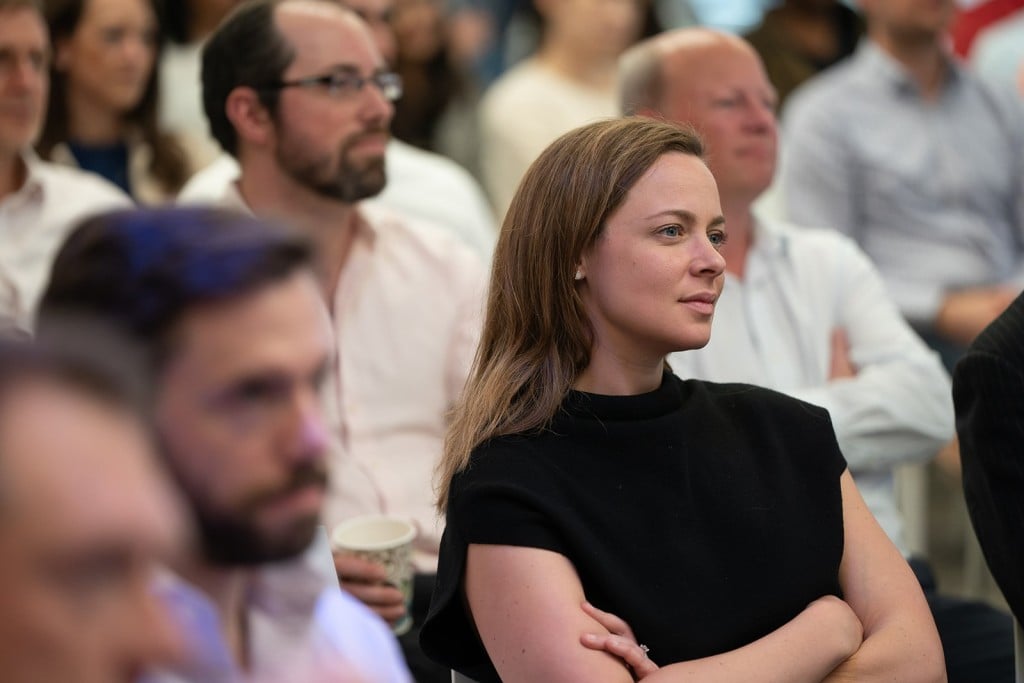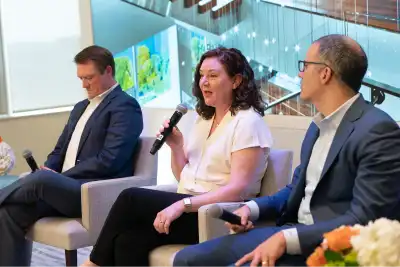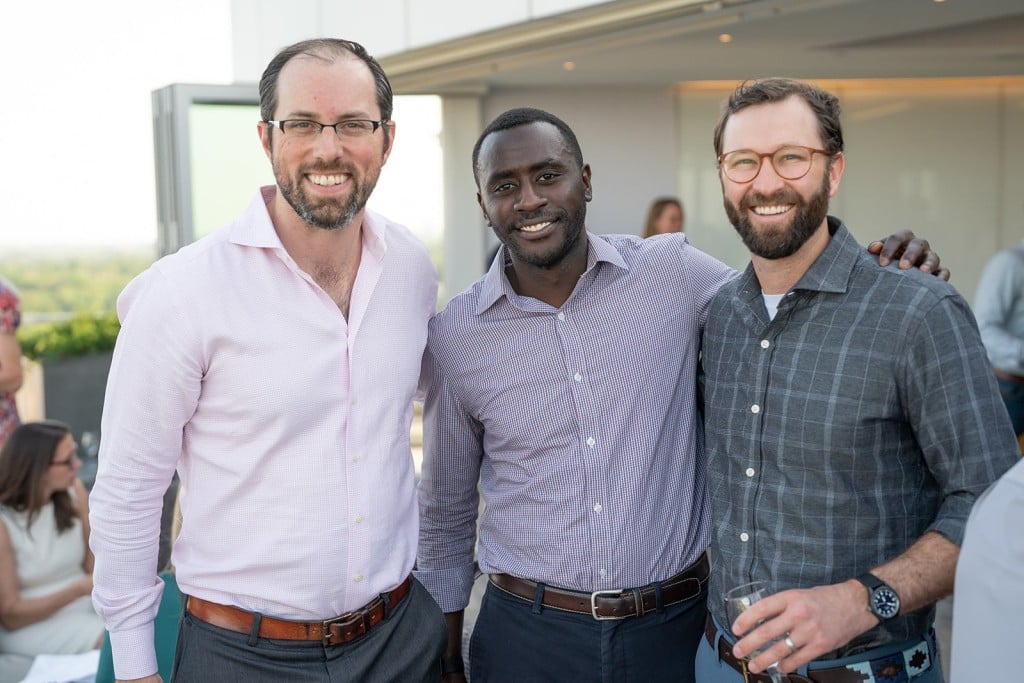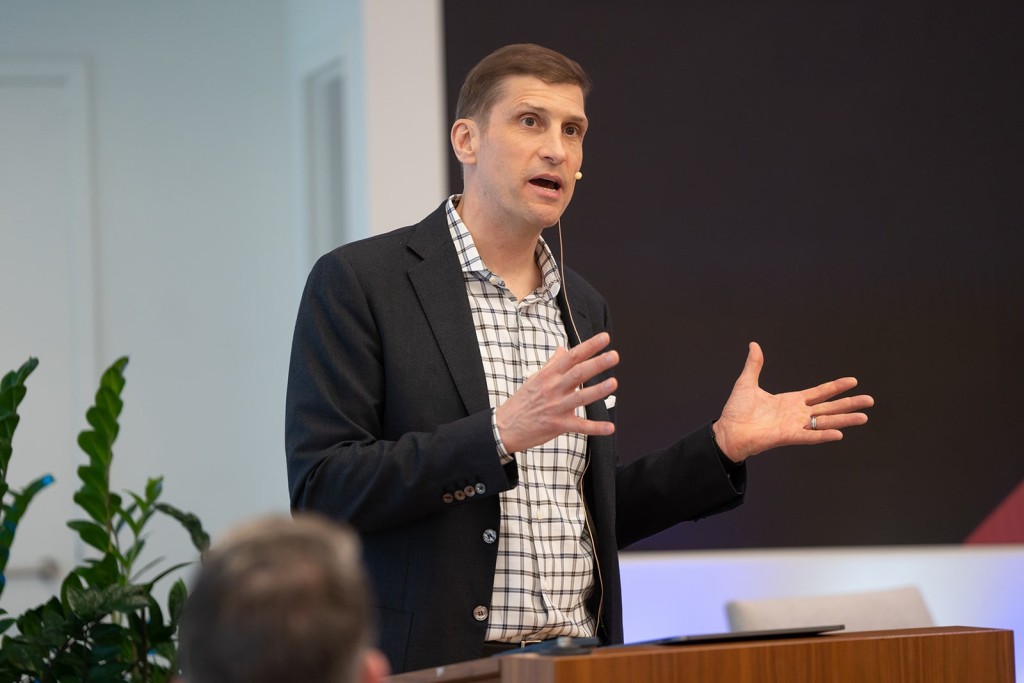Related Articles
An approach to stewardship that closely aligns with a firm’s investment philosophy can be critical to effectively navigate the opportunities and challenges created by advances in technology, a changing climate, and the ever-increasing complexities of global trade. At Sands Capital, we believe that approach should be value-driven, long-term oriented, and horizontally integrated.
Stewardship is Value-driven.
As an active fundamental long-only manager focused on investing in innovative public growth businesses globally, we believe effective stewardship is very much aligned with our investment philosophy. We seek to identify and own businesses with the potential to generate sustainable, above-average earnings growth over the long term. Because we believe stock prices tend to track that earnings growth over time, we expect that identifying the businesses with such capacity can lead to strong stock price appreciation for our clients. Thus, through our stewardship efforts, we focus on assessing any potential factors that might affect a business’ capacity to sustain that earnings growth. That can include environmental, social, and governance (ESG) factors as well as financial ones.
Stewardship is Long-term Oriented.
It also matters that we are strongly long-term oriented. We think of ourselves as long-term business owners, not short-term stock traders, striving for an investment time horizon of five years or more. In terms of stewardship, we believe that sharing our views in support of influencing positive change takes time, just like it takes time to build a really great business. We believe patience and building trust and relationships with companies make stewardship more effective. For us, that often starts before we have even invested. The longer the time horizon, the greater the potential for positive outcomes and the greater the number of factors that will need to be considered in both your analysis and engagement.
Stewardship is Horizontally Integrated.
At Sands Capital, all our investment professionals are in some way involved in the stewardship process. Our lead analysts are really the drivers of the ESG assessment, engagement, and proxy voting, and our stewardship team acts as a team of internal consultants to the investment team, providing structure, guidance, tools, and subject matter expertise.
That combination of concentration, business knowledge, and a long-term investment horizon is what we believe gives us credibility when it comes to engagement with our businesses. In our experience, companies want to see an investor who understands them—a partner who comes to the table having done their research and who has thoughtful suggestions. We acknowledge we are quite lucky in that sense.
“That combination of concentration, business knowledge, and a long-term investment horizon is what we believe gives us credibility when it comes to engagement with our businesses.”
We approach companies with a partnership mindset. One thing that helps us tremendously is our concentrated approach to investment management. As of February 28, 2025, we had about $50 billion in client assets under management in approximately 130 companies globally. That means, in our flagship strategies, we hold about 30 to 40 businesses, and we are a top-20 shareholder in just under 30 percent of holdings. We can develop a very detailed understanding of the businesses that we invest in. We also have a high ratio of investment professionals to businesses covered. Our team can develop deep subject matter knowledge while building relationships with the companies.
Other Elements of Effective Stewardship:
- Engagements Should be Tailored.
Tailoring engagements is key. We all know that we need to look at the materiality of any nontraditional financial factors by industry and geography, but there are other considerations as well: things like the size of the company, its maturity, how long it has been public, the size of its sustainability team, who we are talking to, and what role they play. What is the ownership structure? Taking into account those factors is going to make the dialogue much more productive. - Collaborative Engagements Can Be Powerful.
Collaborative engagements (that is, joining forces with other investors to engage with a company) are extremely powerful, but collaboration doesn’t just have to mean company engagement. One of the ways we’ve been collaborating with other investors is to understand thematic focus areas.
For example, one thematic focus area for us over the past three years has been the broad concept of digital ethics. That includes areas such as technology addiction, data governance, cybersecurity, and content moderation—basically all the unintended consequences that come from a quickly digitalizing world and the proliferation of data and AI [artificial intelligence] in our economy.We saw early on that this was a significant material factor for us, especially for the types of companies that we invest in, which are often technically innovative businesses. We recognized that there wasn’t a lot of research out there or tools on how to approach this topic. So with other forward-thinking asset managers, we launched an initiative called Investors for a Sustainable Digital Economy, which aims to pool research and resources to develop knowledge on this topic.
The initial goal wasn’t about engaging companies; it was about trying to understand this landscape and develop some basic tools and due diligence questions that we could use. In that way, it is extremely valuable in furthering our stewardship efforts.
Thematic Approaches Can Be Effective in Identifying Systems-level Risks.
Traditionally, Sands Capital has taken a bottom-up, fundamental, idiosyncratic approach to stewardship, just as it does to investment decisions. That has worked well. But over the last couple of years, we’ve chosen to layer on a more top-down thematic approach, trying to address more systems-level risks.
There are certain themes that are material to companies across the board. They may manifest in different ways, but they tend to be widespread risks. For us, the three themes we find most relevant across our strategies are modern slavery, digital ethics, and climate change. In these cases, we try to marry a systems-level approach, in which the stewardship team investigates the larger issue and seeks to identify relevant companies, with the bottom-up research that the investment team does at the company level.
For example, many people tend to think about modern slavery as forced labor in manufacturing supply chains, such as sweatshops or agricultural labor. But when we investigate it at a broader level, we see it showing up in many different environments. It’s relevant for technology companies that operate peer-to-peer payment systems since profits for human trafficking are often funneled through these systems. It’s relevant for a hospital operator, which may encounter patients who are survivors of human trafficking. How can they mitigate risks? Is there an opportunity to train their staff to recognize them?
So when there are systems-level risks, we need to understand how they appear in each company and what we believe the company should do about it. The practices and the disclosures that result from that can vary quite significantly. That’s why we are finding it effective to combine both top-down and bottom-up research.
Disclosures:
The views expressed are the opinion of Sands Capital and are not intended as a forecast, a guarantee of future results, investment recommendations, or an offer to buy or sell any securities. The views expressed were current as of the date indicated and are subject to change.
This material may contain forward-looking statements, which are subject to uncertainty and contingencies outside of Sands Capital’s control. Readers should not place undue reliance upon these forward-looking statements. There is no guarantee that Sands Capital will meet its stated goals. Past performance is not indicative of future results. You should not assume that any investment is or will be profitable. GIPS® Reports found here.
Sands Capital regularly engages with the management teams and, if appropriate, board members of portfolio businesses to better understand each business’ long-term strategic vision and management of risks and opportunities, including those pertaining to environmental, social, and governance (ESG) matters. More information is available in the Sands Capital Engagement Policy Statement.
AUM includes the discretionary and non-discretionary assets of Sands Capital Management, LLC, as of December 31, 2024, and the gross assets of all funds for Sands Capital Alternatives, LLC, rounded to the nearest billion. Private holdings valuations for Sands Capital Alternatives are updated 45-60 days after quarter-end.
As of October 1, 2021, the firm was redefined to be the combination of Sands Capital Management, LLC and Sands Capital Alternatives, LLC (previously known as Sands Capital Ventures, LLC). The two investment advisers are combined to be one firm and are doing business as Sands Capital. Sands Capital operates as a distinct business organization, retains discretion over the assets between the two registered investment advisers, and has autonomy over the total investment decision-making process.
Notice for non-US Investors.


